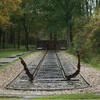De historicus als ‘implicated subject’
Het aandeel van historici bij het vorm- en betekenis geven aan een gewelddadig verleden
DOI:
https://doi.org/10.51769/bmgn-lchr.12027Abstract
Deze bijdrage is onderdeel van het discussiedossier 'Omgang met de Tweede Wereldoorlog: integriteit en nivellering'.
In mijn bijdrage aan dit discussiedossier plaats ik de kritiek op Van Liempts benadering van het oorlogsverleden – in zowel zijn proefschrift over Gemmeker (2019) als in de serie De Oorlog (2010) – in een breder debat over de Nederlandse geschiedschrijving van de Tweede Wereldoorlog en de Shoah. Ik volg uiteenlopende pogingen van Van Liempt en anderen om tot een ‘neutrale’ geschiedschrijving te komen, waarbij morele overwegingen van ‘goed’ en ‘fout’ doelbewust terzijde geschoven worden. Ik beargumenteer dat dit streven naar een positie die boven de partijen verheven zou zijn, ontkent dat historici zelf geïmpliceerd zijn in hun geschiedschrijving. Geïnspireerd door het werk van Michael Rothberg laat ik zien dat de positie van de bystander – evengoed als die van de dader, slachtoffer of verzetsstrijder – medebepalend is voor de dynamiek van de historische gebeurtenissen. Hetzelfde geldt voor de implicatedness van historici in hun eigen geschiedverhaal zoals zich dat in het heden ontvouwt.
In my contribution to this discussion, I situate the critique of Van Liempt’s approach to the Nazi past – both in his dissertation on Gemmeker (2019) and in the documentary series De Oorlog (The War, 2010) – in a broader debate about the Dutch historiography of the Second World War and the Shoah. I follow various attempts by Van Liempt and others to arrive at a ‘neutral’ historiography, in which moral considerations of ‘right’ and ‘wrong’ are deliberately set aside. I argue that this pursuit of a position, apparently exalted above all parties involved, denies that historians themselves are implicated in their historiography. Inspired by the work of Michael Rothberg, I show that the position of the bystander – as much as that of perpetrator, victim or resistance fighter – determines the dynamics of historical events. The same applies to the ‘implicatedness’ of historians in their writing of history as it unfolds in the present.
Downloads

Published
Issue
Section
License
Copyright (c) 2022 Barbara Henkes

This work is licensed under a Creative Commons Attribution 4.0 International License.
Authors who publish with this journal agree to the following terms:
a) Authors retain copyright and grant the journal right of first publication with the work simultaneously licensed under a Creative Commons Attribution 4.0 International (CC BY 4.0) that allows others to share the work with an acknowledgement of the work's authorship and initial publication in this journal.
b) Authors are able to enter into separate, additional contractual arrangements for the non-exclusive distribution of the journal's published version of the work (e.g., post it to an institutional repository or publish it in a book), with an acknowledgement of its initial publication in this journal.
c) Authors are permitted to post their work online (e.g., in institutional repositories or on their website) prior to and during the submission process.
Authors are explicitly encouraged to deposit their published article in their institutional repository.








